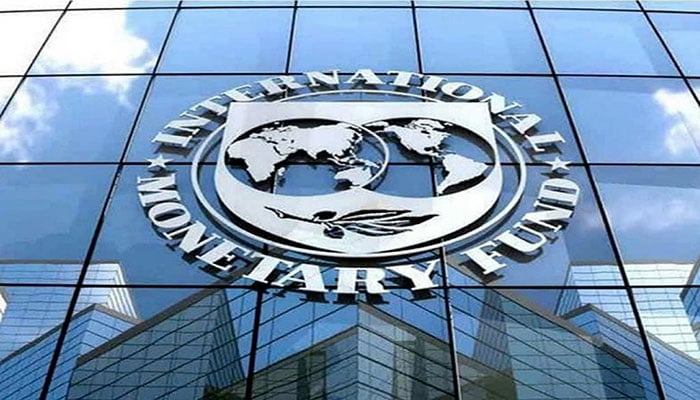Slashing Petroleum Levy target: Officials making efforts to convince IMF
The government has maintained the POL prices for the last couple of months when the international prices stood at $60 per barrel of Arab Light Crude Oil but it had gone up to $68.4 per barrel on June 2, 2021.
ISLAMABAD: Amid the rising POL prices in the international market that had surged to $68.4 per barrel, Pakistani authorities are making last-ditch efforts to convince the IMF for slashing down the Petroleum Levy target by Rs100 to Rs150 billion for the upcoming budget. The IMF has sought the target to fetch Rs600 billion through Petroleum Levy for the upcoming budget 2021-22, so it required Rs30 per litre levy on petrol and diesel and other POL products for the whole financial year.
On the other hand, the government had kept the petroleum prices unchanged and brought down the Petroleum Levy on Motor Gasoline to Rs4.74 per litre and Rs8.86 per liter on High-Speed Diesel sold at retail outlets.
Now the government has been trying to find out a middle way for resolving this issue with the IMF as the government wants to fix of the Petroleum Levy and other federal receipts target in the range of Rs450 billion to Rs500 billion against the desired target of Rs600 billion of IMF.
On the other hand, Islamabad has given assurances to the IMF for generating additional money through non-tax revenues (NTR) as spectrum auction would bring in Rs155 billion in the next budget against Rs27 billion estimated for the outgoing fiscal year.
“The Non-Tax Revenue target will be jacked up from Rs1.1 trillion in the outgoing fiscal to Rs1.4 trillion for the coming budget,” said a top official of the Finance Division and added that the State Bank of Pakistan (SBP) profits, royalty on gas and other receipts would help achieve the desired target on non tax revenue.
The fixing of Petroleum Levy has been a thorny issue between Pakistan and the IMF authorities so far but it was hoped that it would be settled amicably before the announcement of the budget, said the official.
The government has maintained the POL prices for the last couple of months when the international prices stood at $60 per barrel of Arab Light Crude Oil but it had gone up to $68.4 per barrel on June 2, 2021. Now the government has been facing a difficult situation where it will have to hike the POL prices to bridge the gap of $8.4 per barrel and then increasing the Petroleum Levy starting from July 1, 2021.
In the last summary tabled before Prime Minister Imran Khan on May 31, 2021, it was proposed to hike the POL prices by Rs 2 per liter on average but the premier preferred to keep the prices unchanged at the existing level. The Ministry of Finance had to wait till midnight for making an official announcement that the prices of POL products would be kept unchanged. However, the policy of maintaining the POL prices cannot be kept for an indefinite period, so the government will have to hike the POL prices in one jerk probably from the next fiscal year.
“Our discussions are underway with the IMF and we will try to keep the Petroleum Levy low as much possible but a lot will depend upon trends prevailing in the international market. If the POL prices decreased in international market, then it will provide cushion to hike the Petroleum Levy but if it increased, then it will become difficult to pass on the whole burden,” said the official sources who wished not be named.
The rising inflationary pressures have become a headache for the government, so after passing on increased POL prices, inflation could further escalate. With the possibility of economic revival where the OECD countries were projecting GDP growth close to 5.8 percent after overcoming COVID-19 pandemic, the POL prices might further increase, so the PTI government must take steps for discouraging consumption of petroleum products.
-
 'A Very Special Visitor' Meets Queen Camilla At Clarence House
'A Very Special Visitor' Meets Queen Camilla At Clarence House -
 Jodie Turner Smith Shares One Strict Rule She Follows As A Mom
Jodie Turner Smith Shares One Strict Rule She Follows As A Mom -
 Hailey Bieber Reveals KEY To Balancing Motherhood With Career
Hailey Bieber Reveals KEY To Balancing Motherhood With Career -
 Photo Of Jay-Z, Other Prominent Figures With Jeffrey Epstein Proven To Be Fake
Photo Of Jay-Z, Other Prominent Figures With Jeffrey Epstein Proven To Be Fake -
 Hillary Clinton's Munich Train Video Sparks Conspiracy Theories
Hillary Clinton's Munich Train Video Sparks Conspiracy Theories -
 Fans Slam Talk Show Host For 'cringe' Behavior In Chris Hemsworth Interview
Fans Slam Talk Show Host For 'cringe' Behavior In Chris Hemsworth Interview -
 Woman Jailed Over False 'crime In Space' Claim Against NASA Astronaut
Woman Jailed Over False 'crime In Space' Claim Against NASA Astronaut -
 James Van Der Beek’s Close Pal Reveals Family's Dire Need Of Donations
James Van Der Beek’s Close Pal Reveals Family's Dire Need Of Donations -
 Prince William And Harry's Cousins Attend 'Wuthering Heights' Event
Prince William And Harry's Cousins Attend 'Wuthering Heights' Event -
 Hailey Bieber Turns Heads Just Hours After Major Business Win
Hailey Bieber Turns Heads Just Hours After Major Business Win -
 King Charles' Andrew Decision Labelled 'long Overdue'
King Charles' Andrew Decision Labelled 'long Overdue' -
 Timothee Chalamet 'forever Indebted' To Fan Over Kind Gesture
Timothee Chalamet 'forever Indebted' To Fan Over Kind Gesture -
 Columbia University Sacks Staff Over Epstein Partner's ‘backdoor’ Admission
Columbia University Sacks Staff Over Epstein Partner's ‘backdoor’ Admission -
 Ozzy Osbourne's Family Struggles Behind Closed Doors
Ozzy Osbourne's Family Struggles Behind Closed Doors -
 Dua Lipa Claims Long-distance Relationship 'never Stops Being Hard'
Dua Lipa Claims Long-distance Relationship 'never Stops Being Hard' -
 BTS Moments Of Taylor Swift's 'Opalite' Music Video Unvieled: See Photos
BTS Moments Of Taylor Swift's 'Opalite' Music Video Unvieled: See Photos




